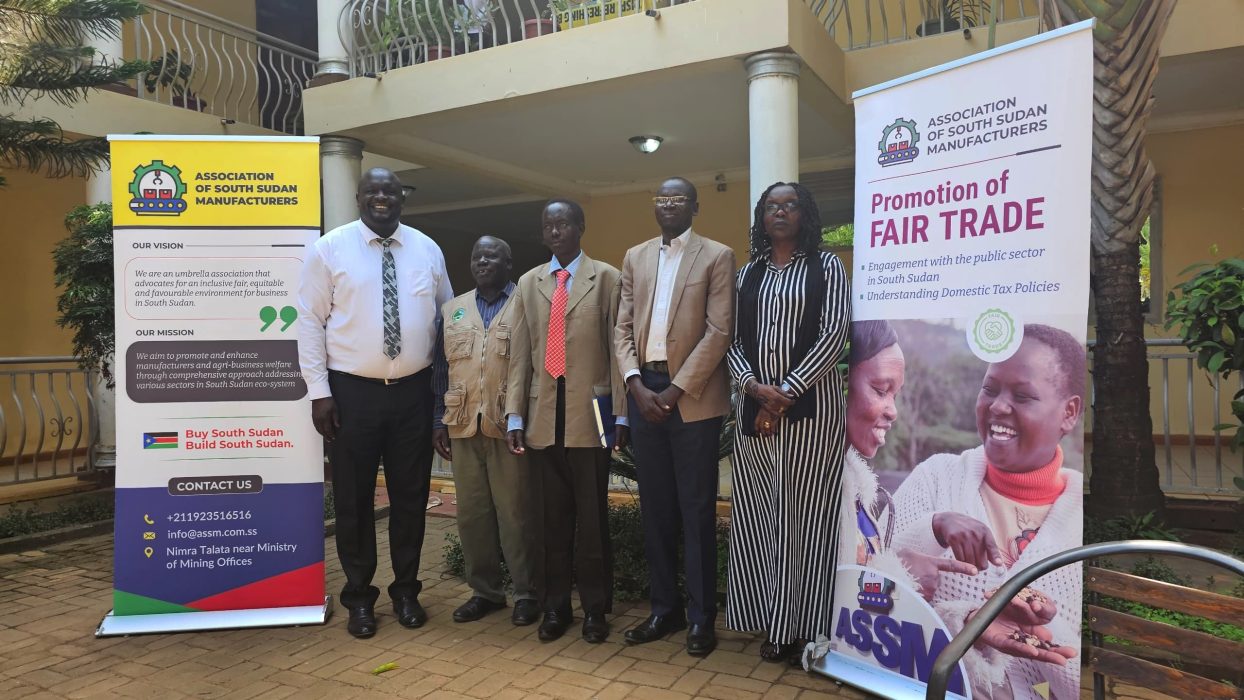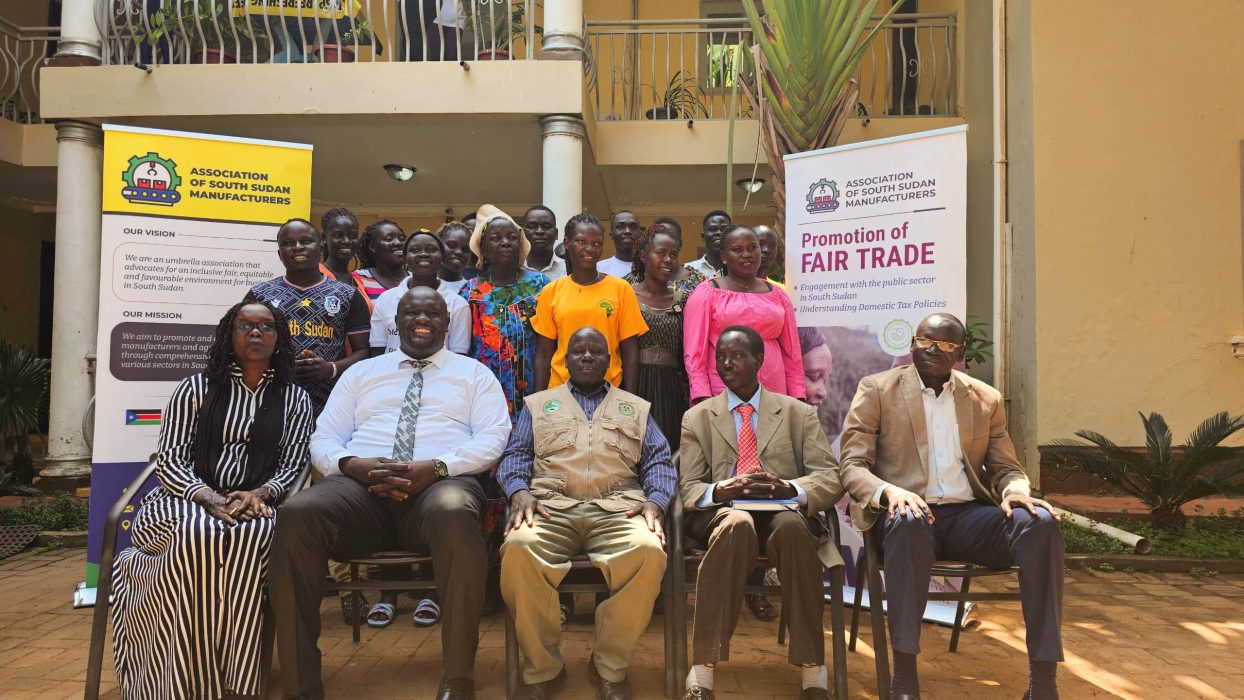Trainings and Capacity Building
The association is planning to train small entrepreneurs to enhance their capacity and to maximize their production. There is a great opportunity in the oil seeds production and training of the small-scale producers and enhancing their technical know-how, this will greatly impact positively on the economic and social environment.
Most manufacturers in South Sudan have not embraced technology in their operations and this highly affects the business performance. The association plans to train manufacturers on the financial software’s, digital business applications, procurement software and business management tools. This will intern improve on the effectiveness and efficiency when it comes to trading locally and exporting of their produce.

TORIT WORKSHOP ON PROMOTION OF FAIR TRADE
Association of South Sudan Manufacturers in collaboration South Sudan National Bureau of Standard has conducted a workshop in Torit Eastern Equatoria State, on 9/01/2025 Torit Vision Hotel.
This workshop main purpose was to create awareness for local and regional traders including local business owners, on understanding domestic tax policies and it contribution to ward the development of the state and the country generally.
The engagement of public sectors in the promotion of fair trade policy in South Sudan is crucial for fostering sustainable economic development, poverty reduction, and social equity. Given South Sudan’s fragile socio-political context and its reliance on subsistence agriculture and raw commodity exports, fair trade principles can help ensure better livelihoods for producers, improved labor standards, and more inclusive economic growth. Below is an overview of how public sector engagement can promote fair trade policies in South Sudan:
Therefore Engaging the public sector in promoting fair trade policy is essential for creating a sustainable and equitable economic system. Through strategic policy-making, institutional support, partnerships, and education, the government can enable small producers and traders to benefit from fair trade. This not only supports poverty reduction and social justice but also enhances the country’s international trade reputation.






